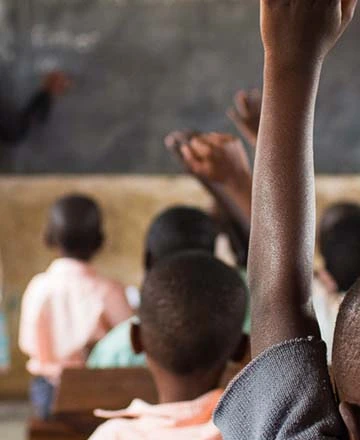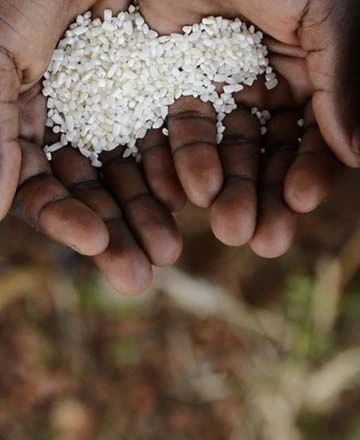Multiple Interlinked Global Crises Resulting in Regress in SDG Achievement Putting the World on the Verge of the Abyss
The world is facing the impact of multiple and interlinked global crises caused by climate change, pollution, desertification and biodiversity loss, the COVID-19 pandemic, by new and ongoing conflicts, and by the ungoverned development of new technologies. According to the 2022 advance unedited version of the United Nations (UN) Secretary-General’s annual report on Progress towards the Sustainable Development Goals (SDGs), “years, or even decades, of development progress have been halted or reversed” and “the very viability of achieving the SDGs by 2030” is at risk.
The combined social, economic, and health impact of the COVID-19 pandemic has exceeded any other major crisis in recent history. Due to the pandemic-related economic decline, around 97 million more people live in extreme poverty in 2022 compared to pre-pandemic levels.[1] The crisis is also aggravating inequalities. The labour market has been hit particularly hard with the loss of about 125 million full-time jobs in 2021, which it will take several years to recover from.[2] Consequently, the cumulative global income loss in 2021 compared to the previous year is about 10 trillion USD, of which more than 3 trillion USD falls on developing countries.[3] Education gains accomplished over the past two decades have been eradicated. According to estimations over 100 million additional children fell below minimum academic levels as a result of school closures, resulting in a cost of 17 trillion USD in lost learning, lower productivity and job losses.[4] Climate action has been overshadowed by the multiple crises and the increased emergence of natural disasters have even more far-reaching economic and social costs than the crises we are already confronted with.[5] By 2030, 132 million people could fall into extreme poverty due to climate change.[6]

million full-time jobs were lost due to COVID-19 in 2021

million people could fall into extreme poverty by 2030 due to climate change

million people from 24 countries/territories were facing acute food insecurity due to (armed) conflicts in 2021
The pandemic resulted in the worst recession in decades, although the global economy started to revive in 2021, with the global output expanding by 5.5%. Yet, new COVID-19 variants and continued vaccine inequity, together with rising inflation, major supply-chain disruptions, policy uncertainties, and unsustainable debt in developing countries, caused the global economy to slow down again at the end of 2021.[7] As a result of the economic collapse, many countries face an exacerbated debt situation and decreasing fiscal space increasing inequalities and leading to terrible consequences for the most vulnerable.
The world is also facing the highest number of violent conflicts since 1945. In 2021 alone, 139 million people from 24 countries and territories were facing acute food insecurity due to (armed) conflicts.[8] Furthermore, the war in Ukraine has caused food, fuel and fertilizer prices to skyrocket, disrupted supply chains and global trade, and caused distress in financial markets. Together with the refugee crises, the impacts of the conflict may lead to a global food crisis and result in significant regress to the SDGs. According to the advance unedited version of the UN Secretary-General’s annual report on Progress towards the SDGs, it is estimated that the war could cut global economic growth by 0.9% in 2022 and have implications for aid flows. In essence, those SDGs with the highest exposure to the three-dimensional food, energy and financial crises are being hit the hardest.
Financing a sustainable transformation is becoming more challenging as a consequence of the pandemic and its follow-up crises. Simultaneously, following an initial massive investment cutback of 40% in 2020, global flows in foreign direct investment (FDI) are now up 77% to an estimated $1.65 trillion, thereby exceeding pre-pandemic levels.[9] Beyond that, net official development assistance (ODA) rose to an all-time high of 178.9 billion US$ in 2021.[10] Hence, the current crises can also be seen as an opportunity for development finance. However, despite these positive trends, recovery efforts are not distributed equally, and with an average contribution of 0.33%, we are still far below the 0.7% ODA of GNI set by the UN. Consequently, the COVID-19 pandemic indeed revealed a lack of financial solidarity as developing countries face significant challenges to recover — with increasing interest rates, record inflation, significant debt burdens, and exponential increases in the cost of financing.[11]
Build Back Better, Green Recovery, Just Transition
Different recovery concepts – Green Recovery, Build Back Better, Just Transition – are promoted by various stakeholders.
Green Recovery refers to recovery measures that put the environment in the centre. It mainly focuses on climate change mitigation and air pollution. The concept of Building Back Better seeks to transform existing economic paradigms that create inequalities, while the term Just Transition stresses the importance of the third pillar of sustainable development during that process: action towards a sustainable future need to be combined with social commitments to ensure a future with decent work opportunities for everyone
Recover Forward – Priorities for a Sustainable and Resilient Recovery
Transformational changes are required now more than ever. The SDGs and the 2030 Agenda provide a compass out of the crisis, towards a resilient and inclusive recovery. As early as March 2020, UN Secretary-General António Guterres called upon the global community to create conditions for a ”recovery that builds a more sustainable, inclusive and equitable economy, guided by our shared promise: the 2030 Agenda for Sustainable Development”. Under slogans such as Build Back Better, Green Recovery, and Just Transition, an international debate has taken place on how to respond to the COVID-19 pandemic and beyond, addressing the significant challenges in achieving the SDGs by 2030.
Yet, recovery efforts have so far not been sufficient to accelerate sustainable development in line with the 2030 Agenda. Indeed, there is a regress in almost all SDGs and the world faces a critical moment as pointed out in the latest report of the UN Secretary General: “Either we fail to deliver on our commitments to support the world’s most vulnerable or together we turbo-charge our efforts to rescue the SDGs and deliver meaningful progress for people and planet by 2030.”
Recover Forward in German Development Cooperation
Aiming to address the holistic approach of the 2030 Agenda, development cooperation and economic recovery policies need more than just “building back”. Recover Forward as a future-oriented recovery approach, also means avoiding stranded assets and lock-in risks generated under a business-as-usual scenario. The crisis presents an opportunity to foster a transformation to sustainability. It is not about rebuilding outdated, often inefficient, ecologically, and socially unjust structures, but about investing in future industries and reorienting economic systems towards resilience as well as social and ecological sustainability. Recovery efforts provide an opportunity to set the course of future development for decades. Approaches for accelerating SDG delivery and implementing the Paris Climate Agreement need to be identified now. The public and private funds mobilised during and because of the pandemic are crucial for this. Questions about how the global community should invest these funds will determine whether the focus on sustainable economic activity can succeed and whether society will be better equipped to deal with future crises. According to Recover Forward, development cooperation should align investments even more consistently with the 2030 Agenda and the Paris Climate Agreement. Recover Forward suggests the following thesis: If the focus of implementing recovery efforts is placed on the right levers, crises can become an opportunity that accelerates a transformation to sustainability. Public and private resources mobilised during the crisis are critical.
Recover Forward takes as its starting point the 2030 Agenda as a “Magna Carta for sustainability”. Against the backdrop of the BMZ 2030 reform, the bilateral development cooperation of the German Federal Ministry for Economic Cooperation and Development (BMZ) will further strengthen its focus on five core areas reflecting the “five Ps” – people, planet, prosperity, peace and partnership – in the 2030 Agenda. Recover Forward aims to develop and invest in economic systems with social and environmental sustainability at their heart. Growth and sustainability are not mutually exclusive, but rather represent two frameworks – and bringing these two frameworks together creates enormous opportunities. Accordingly, Recover Forward seeks to reinvigorate economies through green and social investment. Wherever possible, German development cooperation will design measures to advance these two dimensions of sustainability simultaneously, thereby generating co-benefits.
Recover Forward focuses on tested and innovative instruments for global sustainability, such as policy-based loans, and blended finance instruments. The integration of financing, policy-dialogue-related and political advisory services are fundamental in order to mobilise additional private financing and increase efficiency.

Sustainable Development Governance Approaches for Recover Forward
Advisory approaches, tools and good practice examples demonstrating how sustainable development governance can support partner countries in recovering forward
learn moreFiscal Policy Approaches
Fiscal policy approaches, sustainable public procurement and investment management tools, strategies to combat tax evasion and avoidance and levers to strengthen accountability for promoting sustainable development
learn more

Knowledge Bank
Search for resources for recovering forward that have been developed with partners all over the world
learn more[modul_content]






